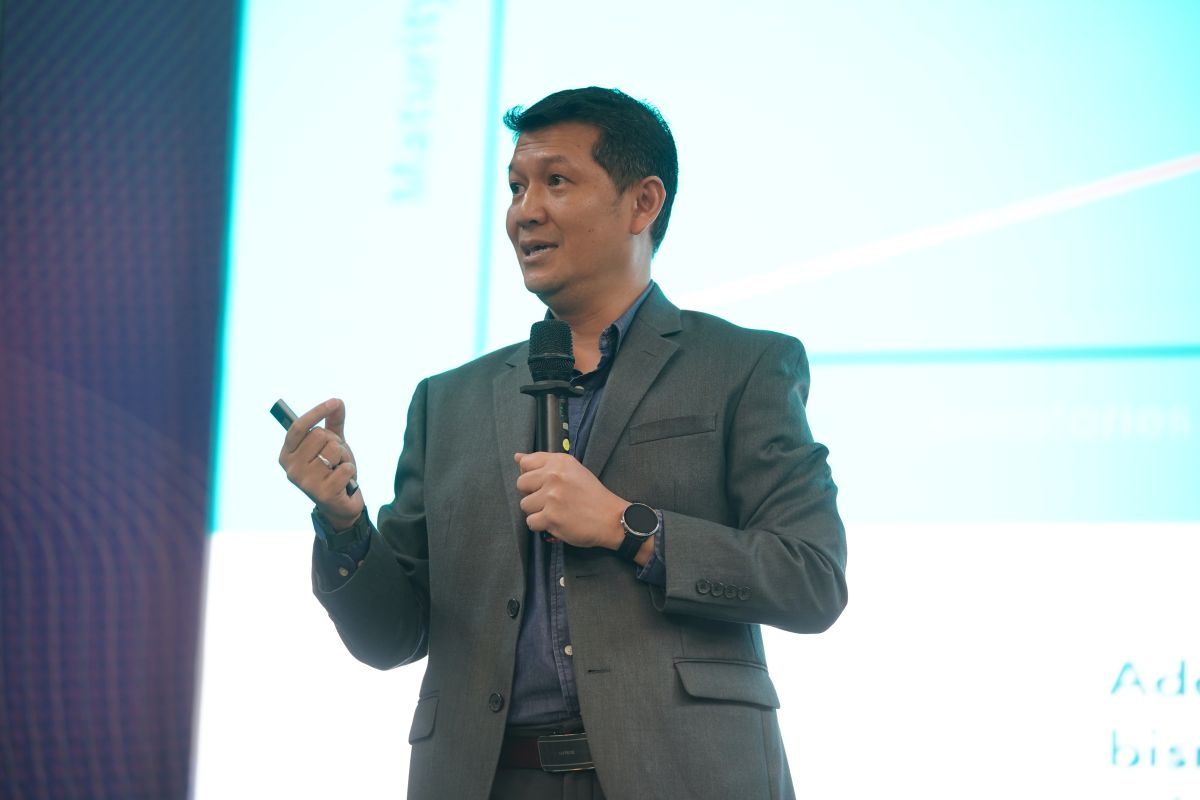Rector: ITB Strives to Build Human Resources with Industrialist Mindset
By Adi Permana
Editor Adi Permana

BANDUNG, itb.ac.id – Rector of Institut Teknologi Bandung, Prof. Reini Wirahadikusumah, Ph.D., presented a material on efforts to build human resources with an industrialist mindset in Road to Indonesian Development Forum (IDF) 2021 Webinar which was held by National Development Planning Agency (Bappenas) of the Republic of Indonesia on Tuesday (29/6/2021).
In one of her presentations, Prof. Reini had touched on technology issues. She said, whenever there is a change in technology, there will also be an industrial revolution.
“Few decades ago, futurists talked about the waves of civilizational change caused by technology," said Prof. Reini in the opening sentence of the third sub-theme: Strict Strategy to Increase Productivity.
The first wave occurred through the steam engine and the development of the science of thermodynamics. The second wave is through the development of electrical technology and its machines. The third wave is through breakthroughs in computer, communication and control technology. While the fourth wave is through manufacturing at the molecular level (nanotechnology and biotechnology).
“If we draw the outline, the first wave has the keyword ‘freedom’ of the constraints of natural condition. The second wave has the keyword ‘concentration’ of spatial resources. The third wave is 'computing and control' which is spread across various activities, and in the fourth wave is 'connectivity'," explained Prof. Reini.
Prof. Reini also touched on digital transformation. According to her, digital transformation is a societal transformation. It is cross-sectoral and multidimensional. Connectivity requires nodes that can connect other nodes in the vicinity, so HR needs to have the ability to connect. In other words, this digital transformation requires an aspect called connectivity thinking.
In this regard, ITB as the organizer of the tridharma of higher education is deemed necessary to improve connectivity between the tridharma points. ITB also needs to improve connectivity between scientific fields as well as connectivity between industry and academia, business, and other organizations.
Practically, ITB implements a strategy to create human resources who have an industrialist mindset. This is realized through curriculum transformation, updating the Learning Management system (LMS), collaborating between study programs along with industrial collaboration.
Regarding the implementation of the Kampus Merdeka program as a competitive program held by the Ministry of Education, Culture, Research, and Technology (Kemendikbudristek), ITB is one of the most involved educational institutions in these activities. ITB even uses its own funds with programs that are integrated with product downstream schemes: research, innovation, multidisciplinary, case-study, and problem-solving.
"Beyond that, it should be noted that since the beginning we (ITB) already have an internal ITB competitive program in implementing the concepts of a Kampus Merdeka at ITB," said Prof. Reini.
In closing, Prof. Reini explained that ITB is engaged in an introspection regarding the current pandemic. This pandemic gives important lessons related to connectivity, which is solidarity.
In short, solidarity is an agreement on action, mutual interest, and supporting reciprocally. If solidarity is low, then the connectivity that is formed can be fragile. Solidarity must aim to make connectivity stronger and more durable, resulting in the form of human resources who have an industrialist mindset
Reporter: Athira Syifa P. S. (Teknologi Pascapanen, 2019)
Translator: Aghisna Syifa Rahmani (TPB SITHS 2020)



.jpg)

.jpg)

